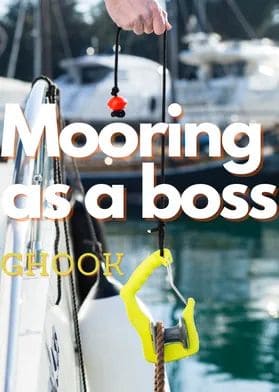Sale of Glass and Mirror Cleaners
Looking for effective boat glass cleaners? For you we have selected specialized chemical compounds that carefully clean all types of glass and mirrors of the yacht, including windshields, portholes, saloon and flybridge glazing, hatches, protective caps of navigation and other equipment. The topRik marketplace offers only marine biosoluble cleaning products from the world's best manufacturers: Star brite, Silpar TK, Cecchi, etc.
If choosing products for cleaning ship glass or caring for mirrors on a yacht is difficult for you, get a free professional consultation right now. To do this, use the feedback form or call the phone number above. All your questions will be answered by experienced sailors - experts of our marketplace. You can also send your request by email – [email protected].
Windshields, hatches, portholes, and other translucent structures in modern shipbuilding are made of artificial glass - acrylic (plexiglass) or polycarbonate (Lexan). Triplex for these purposes is used only on large ships and metal boats, since it has a significant specific weight that fiberglass structures, such as mass-produced yachts, cannot withstand.
How to Choose a Marine Cleaner
If you don't know how to choose a glass cleaner for your boat, first find out what material your boat's glass is made of. This is exactly where you should start when selecting a cleaning product for mirrors on a yacht too.
Acrylic Glazing for Yachts
It’s easier with mirrors, since they are probably made of a special type of acrylic. This is extruded plastic, or plexiglass, on the surface of which a thin layer of amalgam is applied. The topRik marketplace offers a range of specialized products for boat mirrors:
- water-based detergent compositions without aggressive additives;
- hydrophobic agents that repel water;
- protective compounds with wax or polish that reduce the intensity of contamination;
- antistatic agents that provide protection against the accumulation of static electricity, preventing or slowing down the falling of dust onto the acrylic surface.
All compositions with similar properties presented in the topRik marketplace can be used for any acrylic surfaces of a yacht: windshields, portholes, deck hatches, glazing for the salon and flybridge, sliding and swing doors, fire shields, etc.
Acrylic glass or plexiglass is resistant to inorganic substances, acids, alkalis, salts and their solutions. But when choosing means for washing them, you should remember that many organic substances (chlorinated hydrocarbons, ketones, ethers) are strong solvents for acrylic. Therefore, you should avoid products that are designed to care for acrylic surfaces in the home, for example, acrylic bathtubs or kitchen worktops.
Choose only specialized products for the care of yacht glass and mirrors, since their composition takes into account not only the characteristics of contamination during sailing conditions, but also the fact that after washing the solution with detergent goes overboard. Therefore, topRik experts believe that the best cleaning products for glass on a yacht are specially developed marine chemicals that are safe for the environment. These are exactly the ones you can buy in this section.
Polycarbonate Yacht Glass
Polycarbonate is a polymer material - a linear polyester of carbonic acid and diatomic phenols, it is an amorphous engineering plastic. Compositions based on it are widespread.
The main properties that interest yachtsmen in terms of caring for polycarbonate glass:
- the material is not resistant to UV radiation; with prolonged exposure, impact resistance decreases;
- it is not resistant to prolonged exposure to hot water;
- resistant to acids, salt solutions, oxidizing agents;
- not resistant to alkalis, concentrated acids, organic solvents;
- soluble in methylene chloride, dichloroethane.
This information is enough to convince you that abrasive powders, household or automotive chemicals (for example, for polishing headlights) are completely unsuitable for caring for ship glass and mirrors made of any of these most popular materials.
It is unnecessary to remind sailors how important a perfect view from the helm station is for the skipper. This means that the glazing of the pilothouse, saloon and flybridge, where the control post may be located, must be as transparent as possible. For example, when mooring on a catamaran, the skipper often has to monitor the position of one of the stern sides through several windows in the cabin. If they are dirty, this is fraught with errors that can lead to damage to the boat, as well as other people's boats.
A few more examples of how important it is to monitor the cleanliness of translucent structures on a boat. The skipper went down to the salon for lunch and monitors the condition of the sails through the ceiling porthole. Good visibility is also important when the sails are controlled through the flybridge skylights.
After all, grimy cabin windows are also not a pleasant way to enjoy the beauty of the coast during the day.
And let's not forget about devices whose protective caps are also made of cast acrylic or polycarbonate. If you do not want to go blind while navigating, use only specialized compounds for marine equipment to clean them.
The gentle care products available on the topRik marketplace, specially designed for polycarbonate and acrylic glass, as well as other plastic surfaces, remove stains, salt deposits, discoloration or yellowing. Even minor scratches, clouding and stains can be removed from plexiglass and acrylic windows. Scratch removers and care products, such as those from Star Brite brings dull perspex back to life and prevents dust from accumulating.
FAQ
How to get rid of salt stains on glass and mirrors?
Salt on the glass and mirror surfaces of the yacht appears due to the accumulation of sea water on the surface, which then dries out. There are two ways to deal with salt stains on glass and mirrors. Quite labor-intensive and time-consuming is the constant washing of glass and mirrors with fresh water, followed by drying with paper towels. But we recommend another option: to provide a protective film on the surface using glass and mirror cleaners that contain polishes and/or wax. Sea or rain water, as well as condensate, will roll into special trays under the windows without accumulating over the entire area.
Remember that you cannot use fluffy materials, paper or hard brushes to wash and wipe them. Use soft sponges, felt, microfiber, cotton or flannel cloths.
Do glass cleaners affect the anti-reflective coating of mirrors?
If you use a specialized glass cleaner, the anti-reflective coating of the mirror will not be damaged and will wash off well.
But under no circumstances should you use detergents and cleaners containing hydrochloric acid, fluorine, chlorine, denatured alcohol or ammonia derivatives, as they can damage the glass surface. Do not use acidic or alkaline products as they may adversely affect the quality and durability of the coating. Of course, any abrasive powders and scrapers, including blades, wire and metal brushes and scourers, are not an option.
Which cleaner is best to use for tinted windows?
You should know that tinted glass on a yacht is not a surface covered with a film, but painted acrylic or polycarbonate. Therefore, all the products that are used for washing and cleaning marine acrylic and polycarbonate are applicable to such glasses, that is, the compositions that we offer in this section of the topRik marketplace.
How can you replace a specialized glass and mirror cleaner if it is unavailable?
As a last resort, if it is unavailable, a specialized product for cleaning glass and mirrors can be replaced with clean fresh water and the simplest detergents that do not contain aggressive substances that negatively affect acrylic or polycarbonate.


